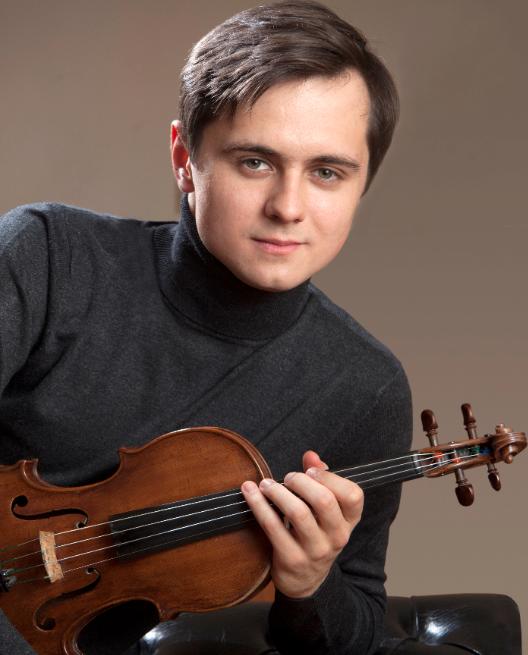Star Violinist Semenenko at Ukrainian Embassy Oct. 6, 7
By • October 13, 2015 0 1304

The world of world class violinist is replete with legendary artists and super-nova performers from reigning stars like Joshua Bell, or Yitzhak Perlman the master, the Italian Giuliano Carmignola, Stephane Grappelli or giants from the past like Jascha Heifetz and Yehudi Menuhin, or Fritz Kreisler, or among the ladies current stars like Hilary Hahn and the Dutch mistress of the violin Janine Jansen.
The violin world is also full of rising stars, and among them is the young Ukrainian native of Odessa, Aleksey Semenenko, who already has a certain sheen of stardom about him after becoming the second prized winner in the Queen Elisabeth Competition in Brussels and being named artists of the month in March of this year by Musical American Magazine.
Semenenko, who lives in Cologne, Germany, who has appeared at the Kennedy Center, already put a memorable stamp on his appeal in the aftermath of last year’s Embassy Series concert at the Embassy of the Grand Duchy of Luxembourg with a program that included works by Chausson, Schubert, Tchaikovsky and Rossini.
There are all kinds of violinists playing all kinds of music in venues all over the world. Semenenko’s singular gifts are not of flamboyance, but of something you can call soulful precision. He’s not the violinist as showman or dramatist who makes you look at him. What he does is an ability to play with the goal of perfection that’s often achieved, and the end result is that you feel the music as if it was aimed straight at your heart, singular, deeply felt. He doesn’t make you watch as much as he makes you listen and feel.
Semenenko, who will perform in the second Embassy Series of the season at the Embassy of the Ukraine in Georgetown Oct. 6 and 7, has been playing the violin since he was six years old. He studied with Zoya Mertsalova at the Stolyarsky and one year in, had done Vivaldi’s “Violin Concerto in A inor” with the Oderssa Philarhmonic Orchestra. “It is a very difficult instrument to play as anyone can tell you,” he said. “My father played the clarinet which is very different.”
Talking to him, you can see that he has a certain required single-mindedness in his approach to his chosen life as a classical musician. “Practice,” he said. “It is always about practice, practice. It is hard work, of course. But it is also very, I don’t know, a passionate experience. When you go on a stage, that is a moment that’s very intense, and you have to stay calm, to focus.”
“Mozart,” he says. “He is the most difficult composer to play, but also the most rewarding. You’ve achieve something when you play one of his composition in a way that is satisfying. You try to do your very best with Mozart, becauses his music touches you so deeply.
He listens mostly to classical music. “For enjoyment, for pleasure,” he said. “I don’t listen to too much pop music, there’s not that much interesting, I think. But, yes, I always like the Beatles when I was young and still.” He says that classical music needs to draw young audiences—“It is not just a matter of new music, but new audiences,” he said.
A New York Times critic described one of his performances and his strengths this way: “He chose works that highlighted his strengths, a powerful technique, rich tone and passionate approache. There was a fluidity and warmth to his playing throughout the program, which concluded with a joyous, bravura performance of a Paganini show piece.”
The bravura with Semenenko comes in the play—there’s no headshaking, no striking gestures, merely the grand beauty of his playing and the music. He treats the music not just respectfully, but with inspiration worth of music as art.
Semenenko will be playing with fellow Ukrainian Inna Firsova on piano. The program will include works by Beethoven, Tartini, Ysaye, Tchaikovsky and Bizet.

